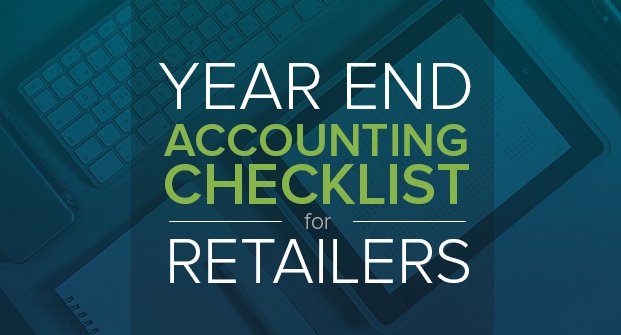Mid-April is approaching, which brings with it the dreaded end of tax year. But what’s the best way to tackle end of year accounting? And how are you going to make sure you’re not letting anything slip through the net? This year end accounting checklist breaks down the many factors to consider.
Since we know that not everybody can depend on software to easily close an accounting period, we asked accounting specialists Evenstone to help us put together this foolproof list of things you need to do as you move towards the end of your tax year.
Tax Planning
Whilst it’s tempting to put off thinking about tax planning until the year-end (unless you have an integrated retail management and accounting platform) your mind should always be on this list, and you’ll get the best results for your business if your finances are always maintained with these in mind…
- Make sure any available tax allowances have been used – any allowances that haven’t been used will be lost at the tax year end.
- Look at pension planning and contributions – the pensions regime is undergoing significant reform and with a general election coming up, levels of contributions and relief may well change.
- Review the timing of business expenses – does it make sense to bring some purchases forwards? Check with your accountant that it makes sense before splashing out!
- Look at the timing of dividend payments and bonuses to ensure the most tax effective position for the individual.
Company Year End
Before handing everything over to your accountant to start preparing your accounts, make sure that everything is properly organised to make the process as painless as possible.
Have your chart of accounts to hand, and make sure that you know the status of your bank balances before even thinking about closing the books.
- Have all the bank accounts been reconciled and do the bank balances match the figures on the final bank statements?
- Review the aged debtors report to ensure that you agree with all the outstanding balances. Do any need to be written off as bad debt?
- Review the aged creditors report to ensure that you agree with all the outstanding balances. Are any payments not recorded because they were paid for in cash or with a personal card?
- Make sure you carry out a stock take and have a year end valuation for stock. Any stock adjustments need to be done before handing over to your accountant.
- Have you made claims for all your personal expenses such as mileage?
- Are all your supplier invoices and receipts neatly filed (either on paper or online) for easy reference?
Having a good idea of what you should be considering, and making sure to set aside enough time to drill down into these lists will really ensure that you are ahead of the game at the end of this tax year.
Work your way through this list, and give yourself a head-start this tax year.
Find this list helpful? Have you got any neat tricks for EOY accounting? Let us know in the comments below.




